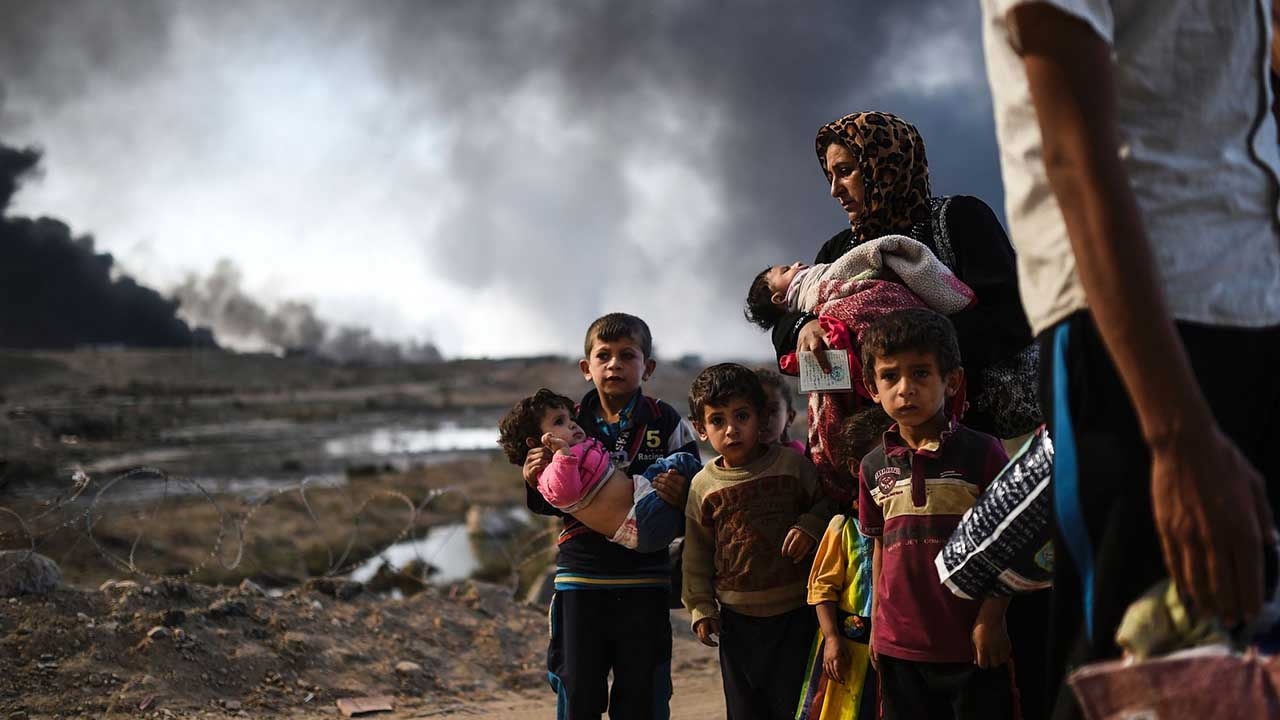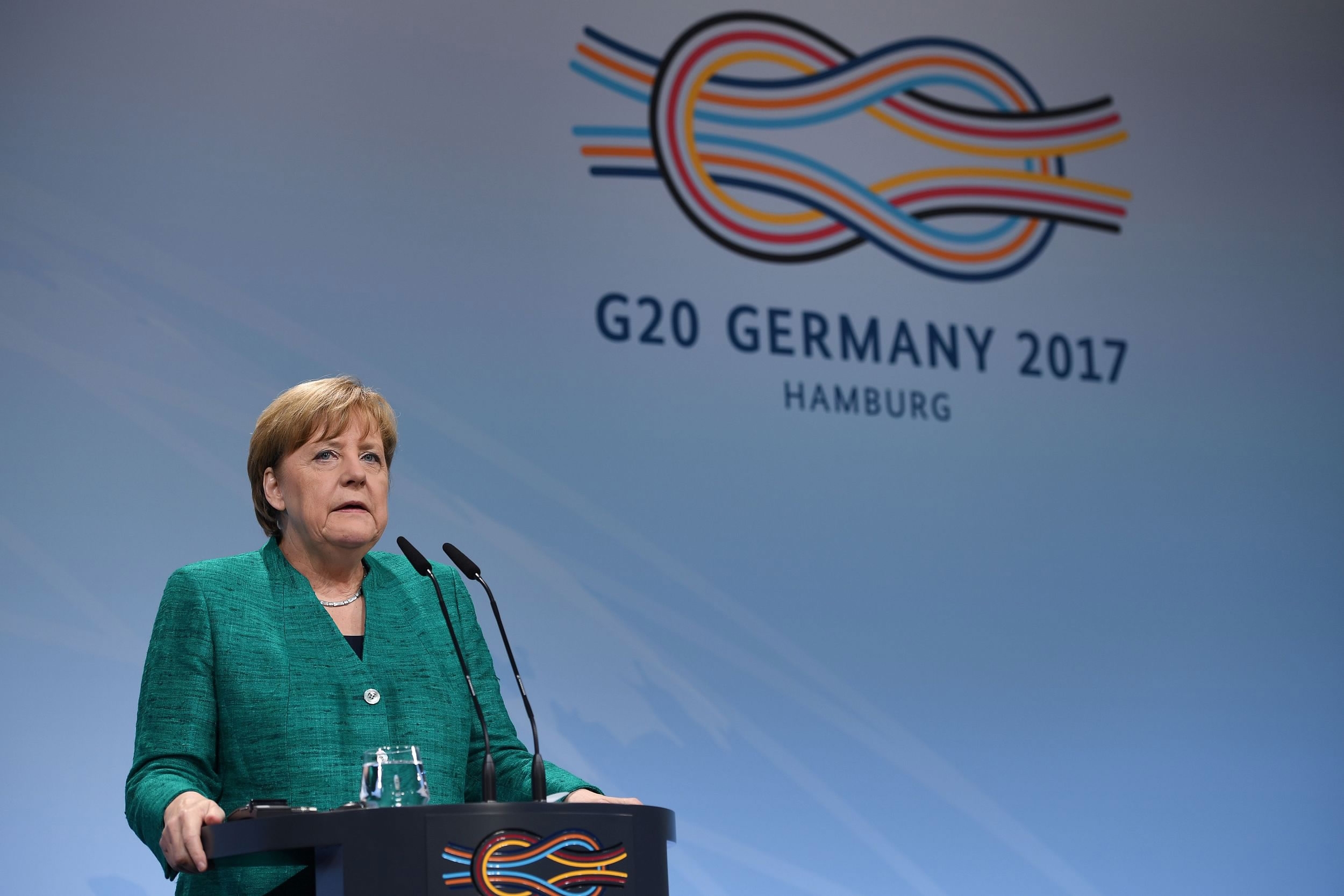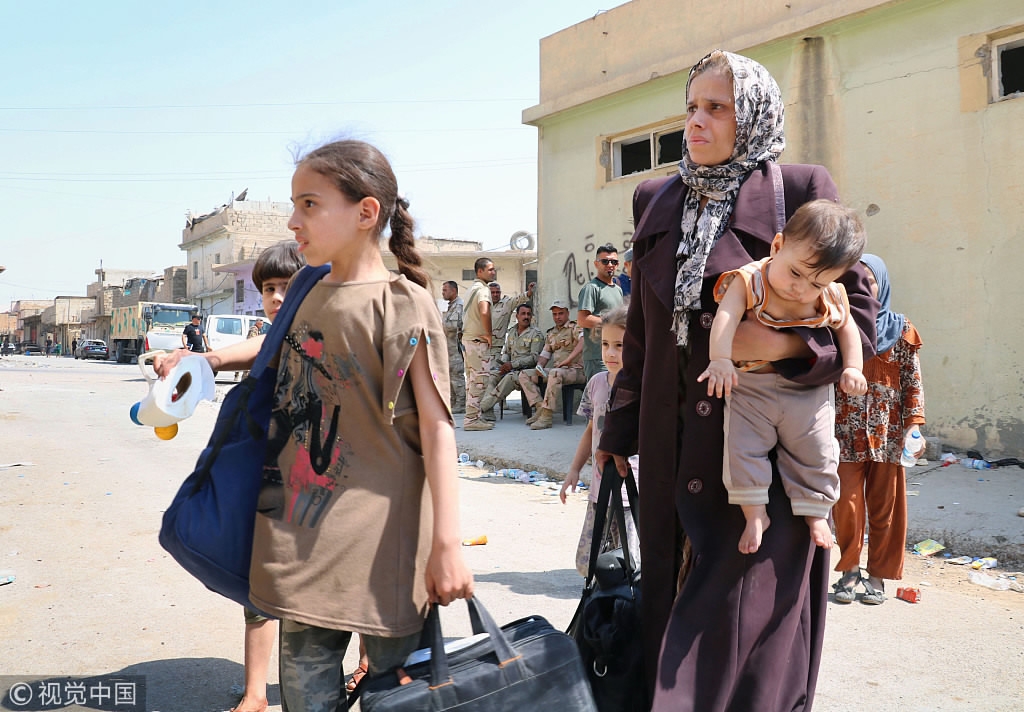
Politics
14:29, 24-Dec-2017
July 2017: G20 leaders gather in Hamburg, Mosul liberated from ISIL
By Zhang Yingqi

As 2017 comes to an end, CGTN has put together a twelve-episode special series "News Map 2017" presenting a month-by-month review of 2017.
From December 18 to 29, the episode reviews the most stirring events, relive the most touching stories, and remember the most influential faces of 2017.
Here are some faces that grabbed world attention in July 2017.
The G20 leaders posed for a family photo in the German city of Hamburg. But not every member was on the same page.
After a meeting on climate change, German Chancellor Angela Merkel announced, "There is the position of the United States on the one hand, but I am very happy that all other G20 heads of state and government have agreed that the Paris agreement is irreversible."

German Chancellor Angela Merkel speaks at G20 Hamburg Summit. /VCG Photo
German Chancellor Angela Merkel speaks at G20 Hamburg Summit. /VCG Photo
Merkel's was not concerned only because of the division in the group. One hundred thousand people rallied outside the venue to voice their opposition to the summit.
"We know that the people who cause the misery that we have all over the world today: refugees, wars, and so on, they are sitting right now in the G20 and are having a chat," said a protester.
Then finally, a breakthrough was made on trade after the United States agreed to back open markets.
"I’m happy we managed to make it clear that the markets must remain open, and that we must fight against protectionism, and against unfair trade practices," Merkel announced at a press conference.
The German chancellor also called on her counterparts to join hands to deal with the rising threat of terrorism, most notably ISIL.
Having been living under the rule of the extremist group for three years, Iraqis in Mosul knew the horror of ISIL better than anyone.

People look exhausted in the northern Iraqi city of Mosul on July 10, 2017, after escaping from an ISIL-controlled area. /VCG Photo
People look exhausted in the northern Iraqi city of Mosul on July 10, 2017, after escaping from an ISIL-controlled area. /VCG Photo
While receiving treatment at a clinic, Shahed Omar, a displaced Mosul resident, pointed to a kid beside her, "This child's father was killed, and that girl's father was killed as well. Her mother, there, is paralyzed, she got scared and got a deep vein thrombosis... It's all because of the Islamic State (ISIL) group."
"They took my uncle and his two sons. They tortured them for three days then they killed them and put their dead bodies outside our house," said Sattar Hussein Freih, another displaced Mosul resident.
Having escaped from the city, Ammar Ahmed was still terrified, "We suffered hunger and thirst. We lived in fear and panic. We were locked in our houses, we could not look outside.”
Their misery finally came to an end, after Iraqi Prime Minister Haider al-Abadi declared victory over ISIL in the city.
But with almost the entire city in ruin, Mosul residents had a long way to go before they could make this place their home again.

SITEMAP
Copyright © 2018 CGTN. Beijing ICP prepared NO.16065310-3
Copyright © 2018 CGTN. Beijing ICP prepared NO.16065310-3